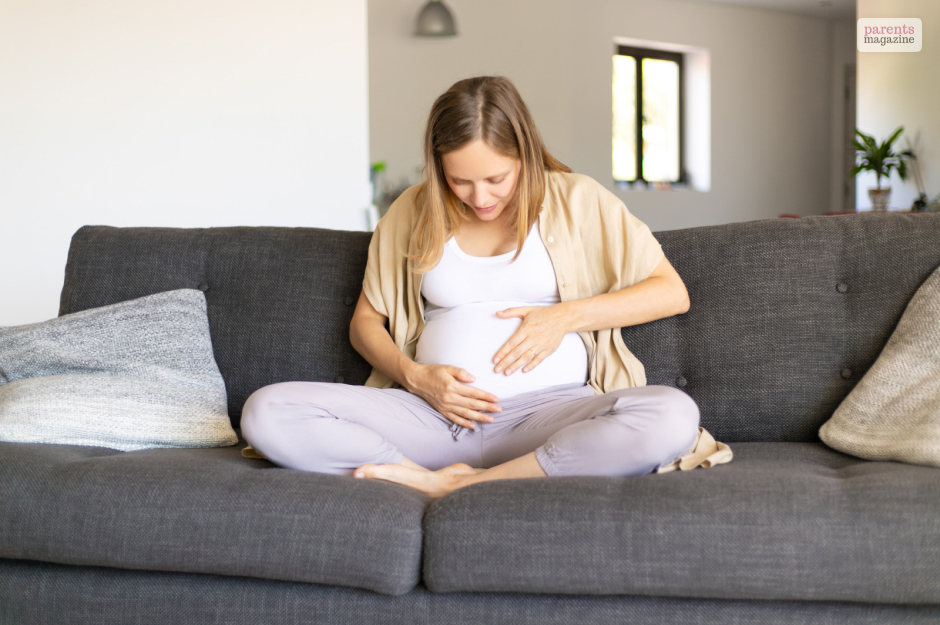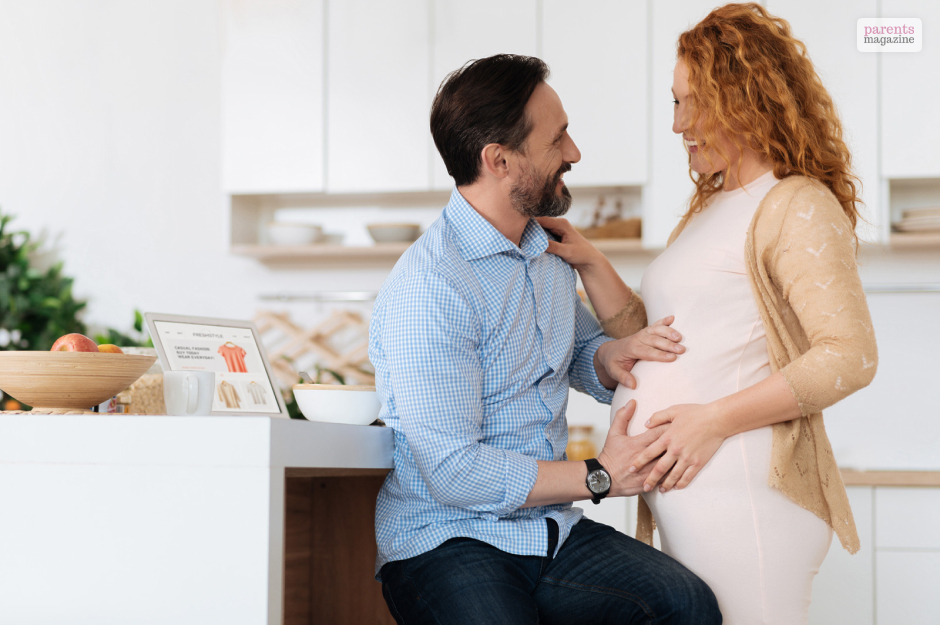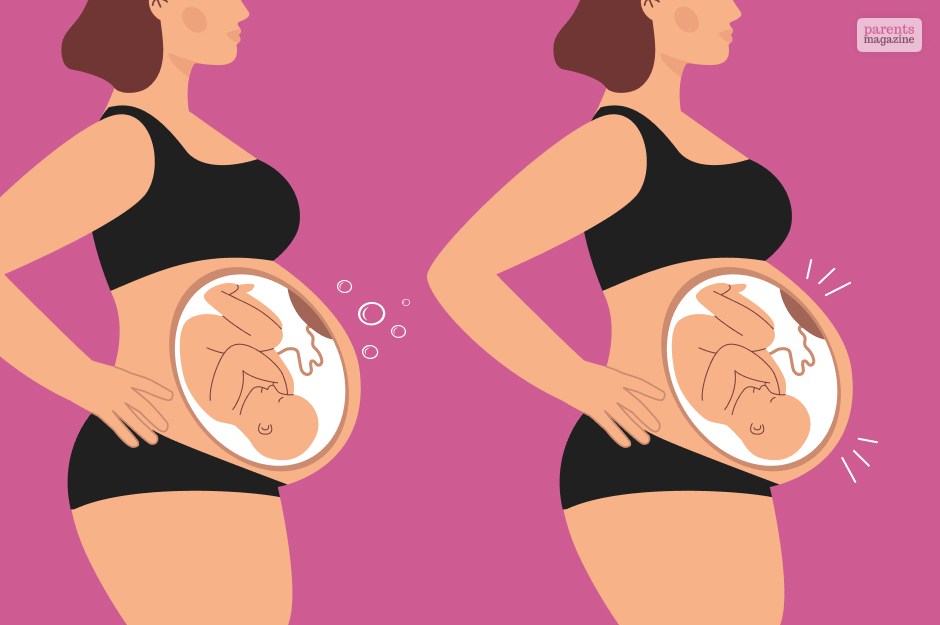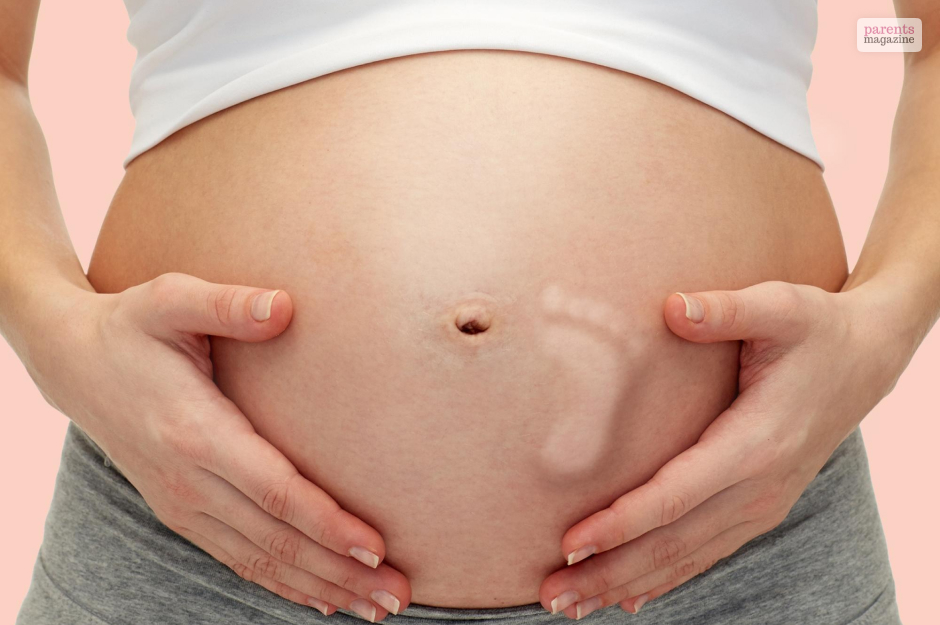
Difference Between Gas Bubbles and Baby Moving!
How do you spot the difference between gas bubbles and a baby moving inside your tummy?
If you are pregnant for the first time, it’s possible to have your baby kick inside when least expected. In addition, it’s equally frustrating when it’s not just the baby kicking but also a gas bubble brewing due to the fiber-rich green veggies you ate last night.
But you should be able to tell the difference, right?
If yes, how?
This article helps you spot the difference between your baby’s kick inside the womb and a gas bubble. Keep reading.
When Do You Feel Your Baby Move?

Babies grow fast. But it will still take some time before they evolve enough to move and kick inside your womb.
There’s a period for babies to start kicking inside the womb. Doctors typically recommend taking an ultrasound of the pregnant womb to identify the baby’s movement and if there are any changes in its movement.
Usually, the baby starts kicking or moving around seven to eight weeks after conception. But, for a pregnant mom to feel that movement would take over 20 weeks. It’s common for some women to feel the quickening (kicking or moving).
However, this feeling of the baby moving inside is different and unique for every mother. It feels different for every mother out there. Some feel it as a fluttering sensation, small muscle spasm, or light taps on their skin.
What Does Quickening in Pregnancy Feel Like?
Quickening the baby’s kicks during pregnancy is overwhelming for mothers. It builds a deeper bond between the mother and the baby about to be born.
- Tapping or tiny pulses.
- Fluttering like a butterfly.
- Tiny muscle spasms.
- Bubbles popping.
- Flickering.
- Light rolls or tumbles.
How Often Does Your Baby Move During Pregnancy?

When you are pregnant, you’ll experience your baby moving 10 to 12 times within 2 hours of the time period. However, there’s no set number or limit for your baby to time their movement on a daily basis. It can differ from woman to woman, and there’s no set number of times for your baby to move, which is common among all women.
You have to try to find the usual pattern of your baby’s movement.
But if you want to know more, here are a few things that may help –
When Do You Start to Feel Movement?
The first movement of your baby is visible during the 20th to 24th week of your pregnancy. The first few times, the movement feels like fluttering or like a butterfly or gas bubbles.
When Should You Start Counting The Movement Of Your Baby?
At about the 28th week of your pregnancy, it’s best to start counting your baby’s movement.
What Should You Do When You’re Not Feeling Enough Movement?
You should be experiencing at least ten movements within several hours. But, if you are experiencing any sudden changes in your baby’s movement, it’s best to contact your healthcare provider.
Around the 40th week of the pregnancy, your baby has grown large. So, they don’t have enough space to move around now.
Difference Between Gas Bubbles and Baby Moving

But, if you are pregnant for a few weeks and feeling something similar, then it may not be the baby kicking. It can very well be gas or acidity. But there’s a difference between how both feel.
Below are some differences to help you understand what you are feeling: a kick or a fluttering sensation due to gas.
Quickening
You will start to feel your baby move as you proceed toward pregnancy. The early kicks or signs of your baby’s movement are called quickening, and it’s a special moment for many parents.
Time of the movement
It’s one of the most exciting feelings for would-be moms who are expecting their babies. Most women experience these kicks during their pregnancy’s 18th or 20th week.
However, if this is not your first pregnancy, you may feel these kicks earlier during your 16th week of pregnancy.
Factors that Affect Quickening
However, other factors determine and influence when you start to feel your baby’s movement after pregnancy. These factors include your pregnancy age, weight, and placental placement.
Types of feelings due to baby’s movement
The first time your baby starts moving, it feels like a fluttering sensation inside your womb. Some women describe it as a popping sensation or a fluttering sensation. However, the feeling differs based on the part of the body in which your baby moves.
Frequency of quickening
The baby might move or flutter inside your womb several times a day. The feeling you get depends on the stomach area the baby is touching. Anterior placement can also dampen the movement of the baby. It also increases the sensation of your baby’s movement inside your womb.
Gas Bubbles
It’s common to notice the gas bubbles on the lower left side of your body during pregnancy. This feeling can often radiate up to the left flank of your abdomen.
Most problems with gas don’t last longer than a few minutes. The gas can also dissipate when you release it or change your position.
Your baby’s movement is going to last for a longer time and feel more consistent. Especially later during your pregnancy, when your baby grows, their movement will linger. Later, your baby will take the head-down position, and the kicks will feel like flutters and will feel more concentrated in the upper part of the uterus.
So, based on the sensation, frequency, and duration, you can tell the difference between gas bubbles and baby moving.
Can Gas Feel like Baby Kicks?

It’s common to mistake the presence of gas in your stomach for quickening or the first few kicks of your baby. You might mistake the sensations of a trapped gas for quickening.
It can go the other way around as well. Your baby is still growing during the early phase of your second trimester. Their first kicks and movements can feel like gas bubbling up inside your tummy since it’s a minor movement.
You can feel the first kicks and jabs of your baby anywhere in your tummy. Your baby is smaller at the very beginning of your second trimester. The kicks can appear in places where you have pain or discomfort due to gas as well.
But as your pregnancy becomes more mature, the uterus and the baby will grow in size. As they start to grow, their kicks will appear stronger and more prominent.
Gas Bubbles During Pregnancy
Gas bubbles are a common symptom of pregnancy. It’s also common to mistake the gas bubbles for kicks from the baby. But does it just happen because of digestive issues? Here are a few reasons clarifying why you might experience gas bubbles during pregnancy –
Hormonal Reasons
During pregnancy, progesterone level spikes in your body, relaxing different muscles. It slows digestion and makes it very easy for your body to produce and build up gas.
Baby’s Growth
As your baby starts to grow, it increases in size. Their growth puts pressure on your abdomen, making your stomach digest food slowly. Slow digestion causes gas, and when the gas builds up, you may experience a fluttering sensation or gas bubbles.
Food
Food is also another reason why you might be experiencing digestive issues during pregnancy. Fiber-rich food, dairy products, and high-fat or fried food can cause gas.
Muscle Control
During pregnancy, it’s possible that you may not be able to control your muscles. Lack of control of muscles can also cause gas to form inside your stomach, leading to feelings like your baby kicking.
What Factors Determine When Your Baby Will Move?

But if it’s not the digestive issues, and if your baby has started to kick, how do you notice that? Here are a few tips for understanding when your baby will start to kick –
Experience Makes All the Difference
Have you been pregnant before? If this is your first pregnancy and if you are conceiving a baby for the first time, you might mistake a gas bubble for a baby’s kick. But if you have been pregnant before, you’ll easily find out what’s happening.
Placenta Location
If the placenta is located in front of the uterus, it causes difficulty in movement because it’s cushioning the baby.
Weight
If you are overweight, it might make it difficult for you to trace the movement of your baby inside. So, it’ll be difficult to trace the difference between a gas bubble and a baby moving.
Amniotic Fluid
If there’s not enough amniotic fluid inside, it’ll be difficult to trace your baby’s movement.
Baby’s position
Your baby’s position inside the womb influences its movement inside your tummy. When the baby is facing inward and is kicking like that, it’ll be difficult to feel their movement.
Activity
Your activity level can also affect the extent of your capability to feel your baby’s movement.
Addiction
It’s best to avoid any form of smoking, drugs, or alcohol when you’re pregnant. These things can affect your pregnancy and your baby’s movement.
Wrapping Up
You won’t typically experience kicks before your pregnancy’s 7th or 8th week. On the contrary, it may very well be a gas bubble. Here’s a tip to help gas bubbles become more localized, and you feel them on the lower left side of your abdomen.
But, if it’s the baby moving, you’ll see a pattern of movements. If you are still confused about what it is, consult with your doctor or health care provider. Also, please share your feedback with us regarding this article. Thank you for reading.
Related Articles :
Already have an account?
Sign In
Create your account
User added successfully. Log in









